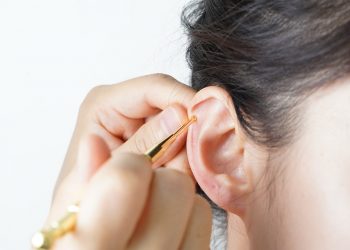Ever had that moment when you’re trying to focus, but there’s this persistent ringing in your ears? You’re not alone. Tinnitus affects millions of people worldwide, and it can be downright frustrating. While there’s no one-size-fits-all cure, sound therapy has emerged as a promising avenue for relief. So, let’s dive into five effective sound therapy techniques that can help alleviate tinnitus symptoms.
Contents
1. White Noise Machines
What Are They?
White noise machines produce a consistent sound that masks background noises. Think of it as a blanket of sound that can help drown out the ringing in your ears.
Pros:
- Easy to Use: Just plug it in, turn it on, and you’re set.
- Portable: Many models are compact, making them easy to take on trips.
Cons:
- Not a Cure: While they mask the noise, they don’t eliminate the underlying issue.
- Can Be Distracting: Some people find white noise irritating rather than soothing.
Use Case:
I remember a friend who struggled with tinnitus, especially at night. He started using a white noise machine, and it transformed his sleep. Instead of lying awake hearing that annoying sound, he was lulled to sleep by the gentle hum.
2. Nature Sounds
What Are They?
Nature sounds, like ocean waves, rain, or birds chirping, can create a calming atmosphere and distract from tinnitus.
Pros:
- Relaxing: Many find nature sounds soothing, which can reduce stress—an important factor in managing tinnitus.
- Variety: There’s a sound for everyone, whether you prefer a gentle stream or rustling leaves.
Cons:
- Subjective Preference: What’s soothing for one person might be annoying for another.
- Limited Effect: While pleasant, they might not be strong enough to mask severe tinnitus.
Use Case:
I once attended a wellness retreat that featured nature soundscapes during meditation sessions. Participants reported feeling more relaxed, and many said their tinnitus seemed less noticeable during these times.
3. Customized Sound Therapy
What Is It?
Tailored sound therapy involves using specific frequencies or sounds that are personalized to your tinnitus profile. Audiologists often provide these customized soundscapes.
Pros:
- Targeted Approach: It directly addresses the frequencies associated with your tinnitus.
- Professional Guidance: Working with an audiologist ensures you’re on the right track.
Cons:
- Requires Investment: You might need to spend on professional services or devices.
- Time-Consuming: Finding the right sounds can take some trial and error.
Use Case:
A colleague of mine went through a customized sound therapy program after struggling with tinnitus for years. The audiologist identified specific frequencies that resonated with her condition, and after a few sessions, she noticed a significant reduction in her symptoms.
4. Tinnitus Retraining Therapy (TRT)
What Is It?
TRT combines sound therapy with counseling to help you habituate to the tinnitus sounds. The goal is to make the sound less bothersome over time.
Pros:
- Holistic Approach: Addresses both the auditory and emotional aspects of tinnitus.
- Long-Term Benefits: Many find lasting relief even after the therapy ends.
Cons:
- Commitment Required: It often requires multiple sessions over several months.
- Not for Everyone: Some people might find the counseling aspect unhelpful.
Use Case:
I’ve spoken with several people who underwent TRT, and the feedback is mostly positive. One individual mentioned how the combination of sound therapy and counseling helped her reframe her perception of tinnitus, allowing her to focus on daily activities without constantly being distracted.
5. Mindfulness and Meditation with Sound
What Is It?
Incorporating sound into mindfulness practices can help you focus your thoughts and reduce the perception of tinnitus. This might include guided meditations that use soundscapes.
Pros:
- Stress Reduction: Mindfulness can lower anxiety, which often exacerbates tinnitus symptoms.
- Accessible: You can find plenty of free resources online.
Cons:
- Requires Practice: It might take time to get comfortable with mindfulness techniques.
- Not Instant Relief: Some might find it doesn’t provide immediate results.
Use Case:
I’ve seen the benefits of mindfulness firsthand. A friend introduced me to a meditation app that incorporates sound therapy. After a few sessions, I found that not only was I less aware of my tinnitus, but I also felt more centered and calm.
FAQs
1. Can sound therapy cure tinnitus?
No, sound therapy doesn’t cure tinnitus but can help manage its symptoms and improve quality of life.
2. How long should I use sound therapy each day?
Most experts recommend starting with 1-2 hours daily, gradually increasing as needed.
3. Are there any side effects of using sound therapy?
Generally, sound therapy is safe, but some might find certain sounds irritating. It’s essential to choose what works for you.
4. How do I know which sound therapy technique is right for me?
Consider experimenting with different methods. If possible, consult with an audiologist for personalized recommendations.
Conclusion
Navigating life with tinnitus can feel overwhelming, but sound therapy offers a beacon of hope. From white noise machines to personalized soundscapes, there are various techniques to explore. It’s about finding what resonates with you—literally and figuratively. Remember, it’s a journey, and what works for one person might not work for another. So, don’t hesitate to try different methods, and consider seeking professional guidance if needed.
This article is for educational purposes only and is not a substitute for professional medical advice. Always consult a qualified healthcare provider before making changes to your health routine.
References
- Henry, J. A., & Roberts, L. E. (2019). Tinnitus. Journal of the American Academy of Audiology. Retrieved from https://www.audiology.org
- Mayo Clinic Staff. (2021). Tinnitus. Mayo Clinic. Retrieved from https://www.mayoclinic.org/diseases-conditions/tinnitus/symptoms-causes/syc-20306758
- National Institute on Deafness and Other Communication Disorders. (2020). Tinnitus. NIH. Retrieved from https://www.nidcd.nih.gov/health/tinnitus
Get Your FREE Natural Health Guide!
Subscribe now and receive our exclusive ebook packed with natural health tips, practical wellness advice, and easy lifestyle changes — delivered straight to your inbox.














